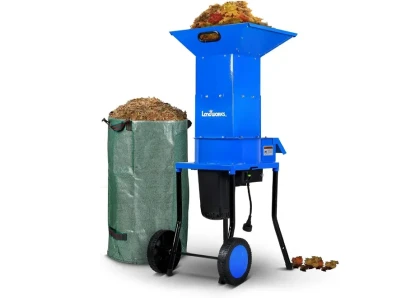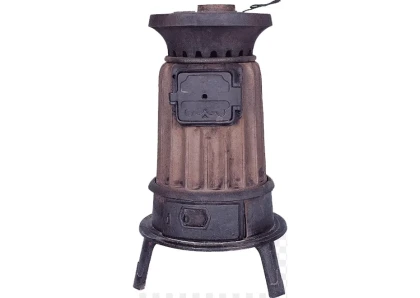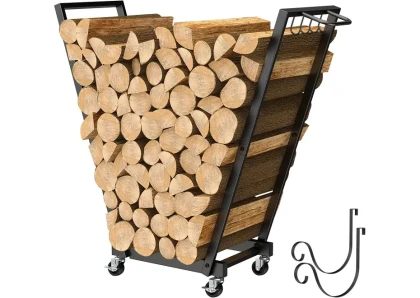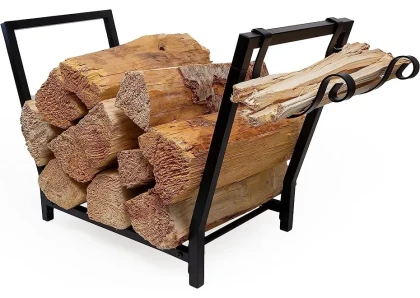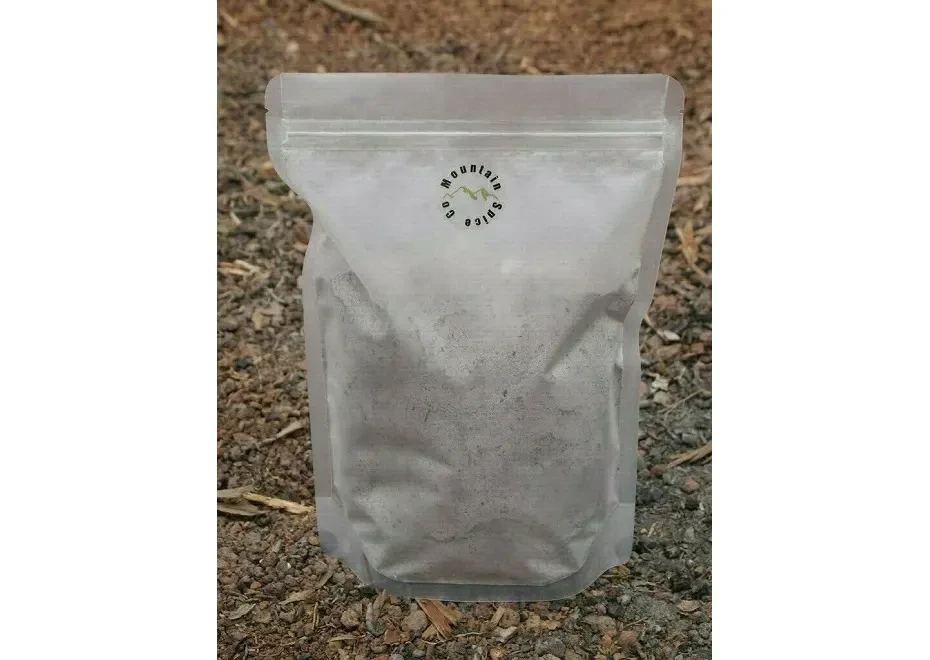
MountainSpiceCO Hardwood Ash
Overview
Wood ash is a natural byproduct of burning wood. It is a good source of potassium, calcium, and other minerals that are beneficial for plants. Wood ash can also be used for a variety of other purposes, such as making soap, pottery, and glass.
This product is made from hardwood ash (pinion / juniper) that has been sifted and filtered. It is organic, eco-friendly, and natural. Wood ash is an excellent source of potassium and calcium carbonate, which are essential nutrients for plant health. It also works as a liming agent to neutralize acidic soils.
Wood ash is best used either lightly scattered or by mixing it into compost. It is important to use wood ash with care to prevent burning the foliage. Wood ash raises the pH of soil, so it is important to test the soil regularly to ensure that it does not become overly alkaline.
Benefits of Using MountainSpiceCO Hardwood Ash
- Fertilizer: Wood ash is a good source of potassium, which is an essential nutrient for plant growth. It can also help to improve the drainage of soil and reduce the acidity of soil.
- Soil amendment: Wood ash can be used to improve the texture of soil and add nutrients. It can also help to control pests and diseases.
- Soap making: Wood ash can be used to make lye, which is a key ingredient in soap making.
- Pottery: Wood ash can be used to make glazes and other pottery materials.
- Glass making: Wood ash can be used to make glass.
- Pest control: Wood ash can be used to repel slugs, snails, and ants.
- Reduce odors: Wood ash can be used to reduce odors in chicken coops and other areas.
How to Use MountainSpiceCO Hardwood Ash
- Fertilizer: Wood ash can be used either lightly scattered or by mixing it into compost. It is important to use wood ash with care to prevent burning the foliage. Wood ash raises the pH of soil, so it is important to test the soil regularly to ensure that it does not become overly alkaline. Wood ash can also be used as a fertilizer in hydroponics systems. To do this, add a small amount of wood ash to the nutrient solution.
- Soil amendment: Wood ash can be added to soil directly or mixed into compost. It is important to use wood ash in moderation, as too much can raise the pH of soil too high.
- Soap making: Wood ash can be used to make lye by mixing it with water and heating it. Lye is then used to make soap.
- Pottery: Wood ash can be used to make glazes by mixing it with other ingredients. Glazes are then applied to pottery to create a decorative finish.
- Glass making: Wood ash can be used to make glass by mixing it with other ingredients and heating it. Glass is then shaped into objects.
- Pest control: Wood ash can be used to repel slugs, snails, and ants by scattering it around plants or in areas where pests are a problem.
- Reduce odors: Wood ash can be used to reduce odors in chicken coops and other areas by sprinkling it on the ground or in the bedding.
What type of Wood ash is good for soil?
Hardwood ash is the best type of wood ash for soil. It contains more potassium and calcium than softwood ash, and it is less likely to contain harmful chemicals. Here is a table summarizing the different types of wood ash and their suitability for soil:
| Type of Wood | Ash Content | pH | Other Beneficial Nutrients | Best Uses |
| Hardwoods | High | Alkaline | Potassium, calcium, magnesium, phosphorus, sodium | Most plants |
| Softwoods | Low | Acidic | Potassium, calcium, magnesium | Acid-loving plants |
| Fruitwood | High | Alkaline | Potassium, calcium, magnesium, phosphorus, sodium | Most plants |
| Nutwood | High | Alkaline | Potassium, calcium, magnesium, phosphorus, sodium | Most plants |
| Barbecue ash | Low | Variable | Potassium, calcium, magnesium, phosphorus, sodium | Most plants |
Safety Precautions for MountainSpiceCO Hardwood Ash
- Wood ash can be caustic, so it is important to wear gloves and eye protection when handling it.
- Do not get wood ash directly on your skin or in your eyes.
- Do not ingest wood ash.
- Wood ash can raise the pH of soil, so it is important to test the soil regularly to ensure that it does not become overly alkaline.
How to make wood ash?
Creating wood ash is a straightforward process that can yield valuable benefits for gardening, crafting, and more. Follow these steps to make your own wood ash:
Step 1: Gather Supplies Gather the necessary supplies, including firewood, a fire pit, fireplace, or wood-burning stove, a container to collect ashes, and a sifting tool.
Step 2: Burn the Wood Start a fire using the firewood in your chosen location, ensuring proper ventilation. Allow the wood to burn completely until only ashes remain.
Step 3: Collect Ashes Once the fire has burned out and cooled down, carefully scoop the ashes into a heat-resistant container. Be cautious to avoid hot embers.
Step 4: Allow Cooling Let the collected ashes cool down completely. This may take a few hours or longer, depending on the size of the fire and the type of wood burned.
Step 5: Sift the Ashes To ensure a fine and consistent texture, sift the cooled ashes through a mesh or fine sieve. This step helps remove any larger particles or debris.
Step 6: Store Properly Transfer the sifted wood ash into a tightly sealed container. Store it in a cool, dry place away from moisture to maintain its quality.
Step 7: Application Your homemade wood ash is now ready to use! Apply it as a soil conditioner, fertilizer, pottery glaze ingredient, or in soap-making.
How to collect wood ash?
To collect wood ash, place a sheet of metal or cardboard under the fire or fireplace. After the wood is burned down, carefully pour the ashes onto the metal or cardboard. Allow the ashes to cool completely. Sift the ashes to remove any large particles. The wood ash is now ready to use.
- Prepare a metal or cardboard sheet. Place a metal or cardboard sheet under the fire or fireplace. This will help to catch the ashes and prevent them from scattering.
- Wait for the wood to burn down. Once the wood is completely burned down, carefully pour the ashes onto the metal or cardboard sheet.
- Allow the ashes to cool completely. It is important to allow the ashes to cool completely before handling them. Wood ash can be caustic, so it is important to take precautions to avoid getting it on your skin or in your eyes.
- Sift the ashes to remove any large particles. Once the ashes have cooled completely, you can sift them to remove any large particles. This will help to make the ashes easier to use.
- The wood ash is now ready to use. You can use wood ash as a fertilizer, soil amendment, or for other purposes.
Is MountainSpiceCO Hardwood Ash Pinion/Juniper Hardwood Ash worth it?
Pros:
- It is a natural and sustainable product.
- It is a good source of potassium and calcium, which are essential nutrients for plant growth.
- It can help to improve the drainage of soil and reduce the acidity of soil.
- It can be used for a variety of purposes, including as a fertilizer, soil amendment, soap making ingredient, pottery material, glass making ingredient, pest repellent, and odor reducer.
Cons:
- It can be caustic, so it is important to wear gloves and eye protection when handling it.
- It is a concentrated product, so it is important to use it sparingly.
- It can raise the pH of soil too high if not used properly.
Conclusion
Wood ash is a natural and sustainable product that can be used for a variety of purposes around the home and garden. It is a good source of potassium and calcium, which are essential nutrients for plant growth. It can also help to improve the drainage of soil and reduce the acidity of soil. When used properly, wood ash can be a safe and effective way to improve the health and productivity of your plants, soil, and other areas.
FAQs
1. What is the Disadvantage of Ash Wood?
Ash wood has a tendency to warp and crack more than some other hardwoods. It can also be susceptible to pests and decay if not properly treated.
2. What is Hard Wood Ash Used For?
Hardwood ash is a versatile resource used as a soil conditioner, natural fertilizer, in pottery glazes, soap-making, and even as a component in compost.
3. Is Hard Wood Ash Good for the Garden?
Yes, hard wood ash can benefit the garden by providing essential nutrients like potassium and calcium, improving soil pH, and deterring pests.
4. Is Ash a Hard Wood?
Yes, ash is a hardwood. It's known for its strength, durability, and versatility in various applications, including furniture making and tool handles.
5. What is the Best Wood for Ashes?
Hardwoods like oak, maple, and hickory are among the best choices for obtaining wood ashes due to their higher mineral content and suitability for various uses such as gardening, pottery, and soap-making.
No listings available
Related Products
American 14" 11-Amp Corded Electric
If you are looking for an easy-to-use lawn mower that is planet-friendly and cost-effective at the same time, you will definitely like this corded...
Earthwise TC70016
The Earthwise cultivator machine is a versatile gardening tool equipped with six adjustable tines, ensuring optimal performance for various soil cultivation tasks. Its motorized...
SnowJoe TJ603E
Dig it and experience the one tiller that’s truly up to the task! Introducing a greener, cleaner way to get dirty with the Sun...
SnowJoe TJ600E
This garden tiller is ideal for starting a new garden or recovering an old lawn. The Sun Joe TJ600E electric tiller and cultivator combines the...
Earthquake 12802
The Earthquake MC440 4-cycle cultivator is a powerful and lightweight solution to maintaining your garden. Designed with stand-up starting, you can comfortably control stops...
Landworks GUO049-FBA
This All Electric Leaf Mulcher Shredder is designed w/ a durable Heavy Duty Steel Upper Feeding port & Body. We are powering this machine...
Pioneer Princess Amish
The Pioneer Princess Amish Wood Cook Stove is an exquisite culinary creation that seamlessly blends tradition, efficiency, and sophistication. Crafted with meticulous care by...
Used Wood Stoves
Used Wood Stoves for Cozy Winter Warmth Awaits! Find your perfect vintage stove: Fisher classic, Grandma Bear elegance, efficient inserts. All are expertly maintained,...
Liantral Rolling Cart Log Rack Firewood Storage
Experience a revolution in firewood storage and transportation with the LIANTRAL Firewood Rack On Wheels. Crafted from durable, rust-proof iron, this rack boasts a...
FireProof Pros 25.6 inch Double Coated Outdoor Indoor Wood Storage
FireProof Pros Firewood Rack a stylish and practical solution that redefines the way you manage firewood for your outdoor fire pit, fireplace, or wood-burning...
Questions & Answers
What do you want to know about this product?
Reviews (5)
BlossomWhisperer42
Garden's Best-Kept Secret!
Experienced gardener's delight. Boosts compost, nurtures soil. Witnessed veggies thrive like never before.
ClayAlchemySculptor
Potter's Paradise!
As a seasoned potter, I vouch for this wood ash. Perfect glaze flux, impeccable results. Elevates my creations.
GreenThumbMaestro88
Nature's Soil Whisperer!
Unveiled soil's hidden potential with this wood ash. Expertly balanced pH, thriving greens. A must for gardening enthusiasts.
SoapySustainabilityArtisan33
Soap Crafting Gem!
Crafted unique wood ash soap blends. Authentic, eco-friendly allure. Expert ingredient for artisanal soap makers.
Hockey Reviews
Comprehensive Nature Aid!
From compost to pottery, this wood ash astounds. Expertly versatile, embodies eco-friendly ethos. Recommending to all!








